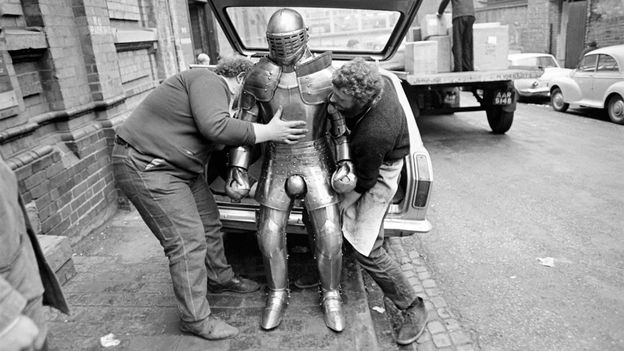- cross-posted to:
- [email protected]
- cross-posted to:
- [email protected]
Summary
In the Renaissance period, codpieces emerged as fashionable accessories for men, initially serving practical purposes such as covering the crotch gap left by shorter doublets. They evolved into exaggerated, often phallic-shaped adornments made of luxurious fabrics and embellishments, symbolizing virility and military prowess. Henry VIII famously popularized them, using their figurative associations to bolster his image of fertility. However, by the late 16th century, codpieces fell out of fashion, giving way to other trends like peascod doublets. Today, very few authentic codpieces remain, but they continue to captivate public interest in historical contexts and even resurface in modern fashion and entertainment, albeit in smaller forms.
Comment
Quick, let me grab my money!



The common legwear in this period were hose; they were like a single long sock for each leg.
The codpiece covered the middle bit.
That’s breathtaking!
Haha. So, a doublet is in a way, like a dress with a skirt. The longer one covers your exposed crotch. Breathtaking indeed!
So not only did men wear wigs and high heels at various points in history, but crotchless stockings too, but they “can’t today” because it’s “not manly”
Horseshit, bring back the crotchless stockings for men!